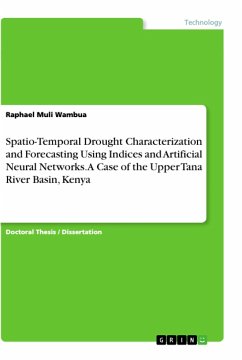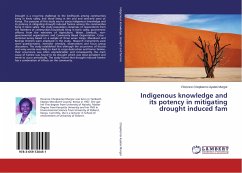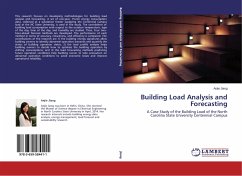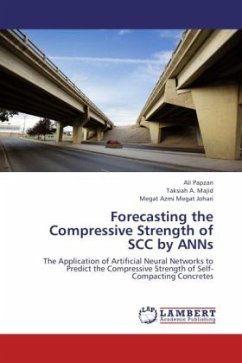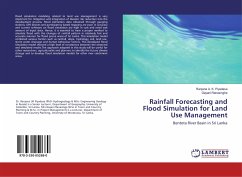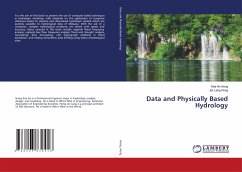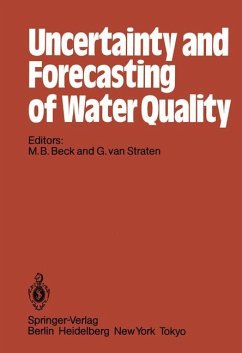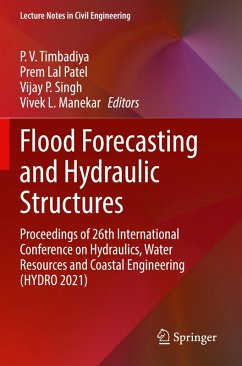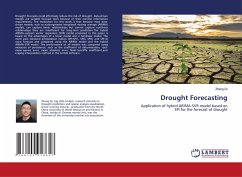
Drought Forecasting
Application of hybrid ARIMA-SVR model based on SPI for the forecast of drought
Versandkostenfrei!
Versandfertig in 6-10 Tagen
27,99 €
inkl. MwSt.

PAYBACK Punkte
14 °P sammeln!
Drought forecasts could effectively reduce the risk of drought. Data-driven models are suitable forecast tools because of their minimal information requirements. The motivation for this study is that because most data-driven models, such as autoregressive integrated moving average (ARIMA) models, can capture linear relationships but cannot capture nonlinear relationships they are insufficient for long-term prediction.The hybrid ARIMA-support vector regression (SVR) model proposed in this paper is based on the advantages of a linear model and a nonlinear model. The multi scale standard precipit...
Drought forecasts could effectively reduce the risk of drought. Data-driven models are suitable forecast tools because of their minimal information requirements. The motivation for this study is that because most data-driven models, such as autoregressive integrated moving average (ARIMA) models, can capture linear relationships but cannot capture nonlinear relationships they are insufficient for long-term prediction.The hybrid ARIMA-support vector regression (SVR) model proposed in this paper is based on the advantages of a linear model and a nonlinear model. The multi scale standard precipitation indices (SPI:SPI1, SPI3, SPI6, and SPI12) were forecast and compared using the ARIMA model and the hybrid ARIMA-SVR model. The performance of all models was compared using measures of persistence, such as the coefficient of determination, root-mean-square error, mean absolute error, Nash-Sutcliffe coefficient,and kriging interpolation method in the ArcGIS software.



